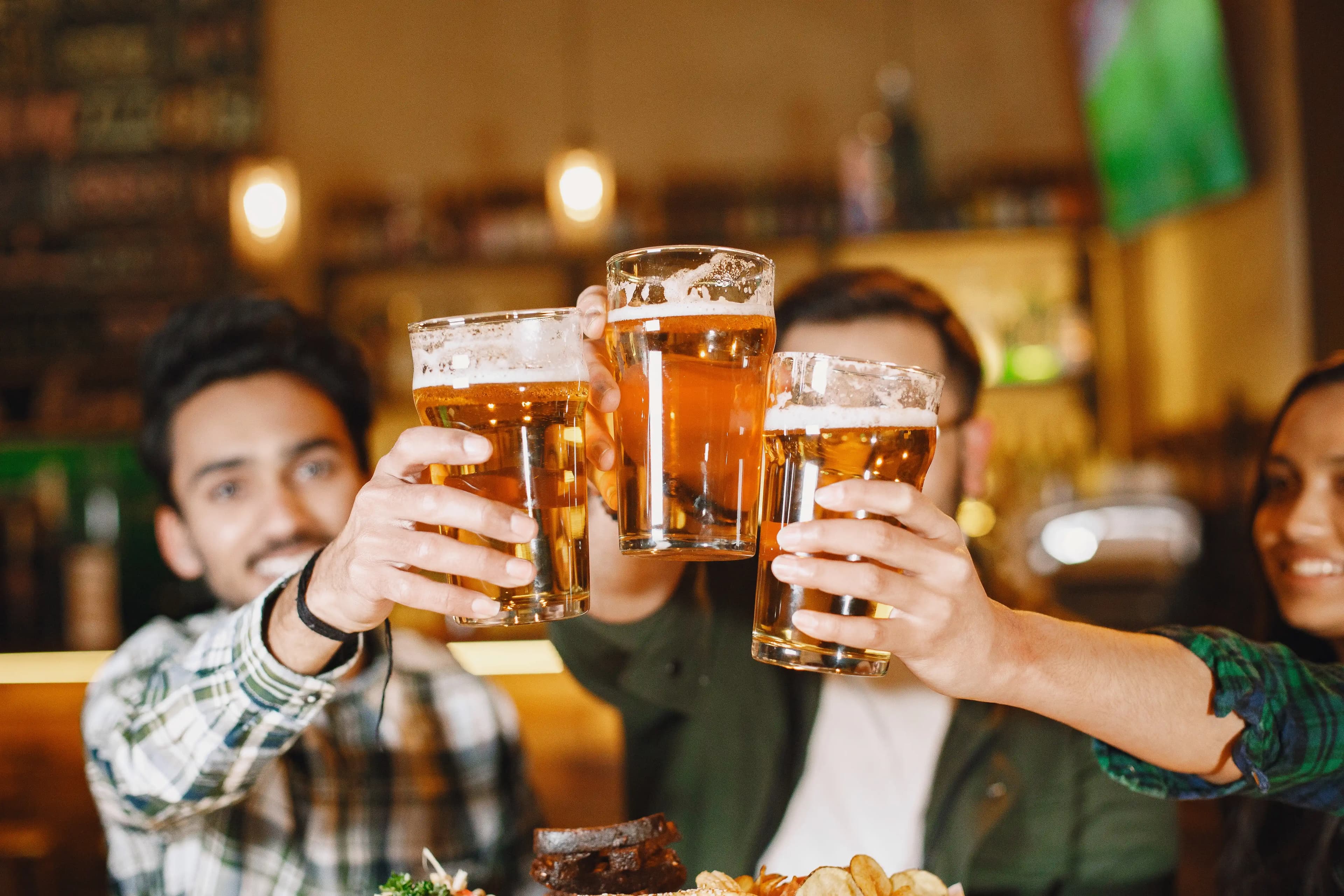Say 'Cheers' In 16 Different Languages During This New Year's Eve!

The Internet has shrunk our world. So, this New Year, let's celebrate the diverse cultures spread across the world. When you raise your glass for a toast, apart from saying a jubilant 'cheers', use phrases that mean the same from different countries. And teach them to your guests. . Below are terms used to toast in 16 different languages!
1. Italian: Cin! Cin!
Italians raise a toast with 'Cin! Cin!', which conveys the sound of glasses clinking when you cheer. It is commonly said during festive occasions and has similar undertones like 'salute' which are used in Western European countries. 'Cin! Cin!' is pronounced as Cheen Cheen and means 'cheers'.
2. Irish Gaelic: Sláinte!
Ireland, also a Western European country, uses the term 'Sláinte!'. Another common phrase used while toasting is “sláinte is táinte. The word 'Sláinte!' is pronounced as SLAHN-juh
3. Turkish: Şerefe!
Turkey has a lot of words and phrases that can be used to raise a toast. The most common and the easiest to pronounce is 'Serefe!' which means 'cheers'. 'Serefe!' is pronounced 'cheh-reh-FEH'

4. Japanese: Kanpai!
In East Asia, while raising a toast, one cheers saying 'empty cup'. Japan's often-used term during a sake toast is 'kanpai' which means 'empty the glass' or 'dry cup' or can even convey 'cheers'. 'Kanpai' is pronounced as 'Kan-pie'. Also, the word isn't just a celebratory term, it is a respected pre-drinking ritual.
5. Spanish: Salud!
It is widely known that Spanish-speaking nations say 'Salud' during toasts. But the saying is not just reserved for toasts or pre-drinking rituals. Hence the term is often used to convey good wishes. You are quite likely to hear it if you sneeze.'
6. German: Prost!
If you have been to Oktoberfest, then you must have heard people say 'Proust' out loud several times. It is the most popular way to toast in German-speaking countries. Consider it a mandatory toast before gulping down a beer. 'Prost' is pronounced as 'Prohst'.

7. French: Santé! / À votre santé!
In France, to cheer before a drink, raise your glass and say 'Santé!'. Another phrase, 'À votre santé' is also commonly used, especially in formal and informal settings. It is also more polite. 'Santé!' is pronounced as 'Sahn-tay' and 'À votre santé' as 'Ah vo-tre sahn-tay'
8. Portuguese: Saúde!
Just like many West European countries, the Portuguese also raise their glasses to good times. The same term is used in Brazil where Portuguese is spoken. Remember to say 'Saúde' before you drink up a cachaça in Brazil. 'Saúde' is pronounced as Saw-OO-de
9. Korean: Geonbae!
Like Japan, Korea also raises a toast with the term 'Geonbae,' pronounced 'Gun-bae.' Though the word means empty the glass, it is not necessary to actually drink all the content in your glass after toasting.

10. Swedish: Skål!
In the Scandinavian country of Sweden, you raise a toast and say 'skål', which means cheers. 'Skål' is pronounced as 'Skawl'. The pre-drink toasting ritual is a bit elaborate in this country. You raise your glass and say 'skål', you also need to have eye contact with everyone, before and after you take a drink. This is a part of Swedish social etiquette.
11. Afrikaans: Gesondheid!
In South Africa, where Afrikaans is commonly spoken, the word for cheers is 'Gesondheid', which we agree, sounds a lot like the German 'gesundheit'. This is because Afrikaans language has Dutch roots. 'Gesondheid'is pronounced as 'Ge-sund-hate'.

12. Chinese (Mandarin): Gānbēi!
Just like the Japanese and Korean terms, the Chinese term used during toasts also means 'dry cup'. It is called 'gānbēi' and pronounced as 'Gan-bay'.
13. Greek: Yamas!
When in Greece, toast like the Greeks! Just lift your glass and say 'Yamas'. It is pronounced as 'Ya-Mas'. It follows the European tradition of toasting to good times.
14. Polish: Na Zdrowie!
Poland has many phrases to raise your glass. The most common is 'Na zdrowie!' which means 'bless you'. It is pronounced as 'Nah zdrov-e-yay'.

15. Filipino: Tagay
In Tagalog, one of the prominently spoken languages in the Philippines, there is no word for 'cheers'. In the Philippines, it is common for a group of people to pass one communal glass that they refill. The communal glass is also called 'tagay'. 'Tagay' is pronounced as 'Ta-gay'.
16. Thai: Chon Gâew
In Thailand, you raise your glass to 'chon gâew'. Chon means crash or knock against and 'gâew' means glass, so the phrase means clink glasses. The phrase is pronounced as 'chone gay-ew'. Another term used, particularly during special occasions is 'chai-yoh'.
*Drink Responsibly. This communication is for audiences above the age of 25.









